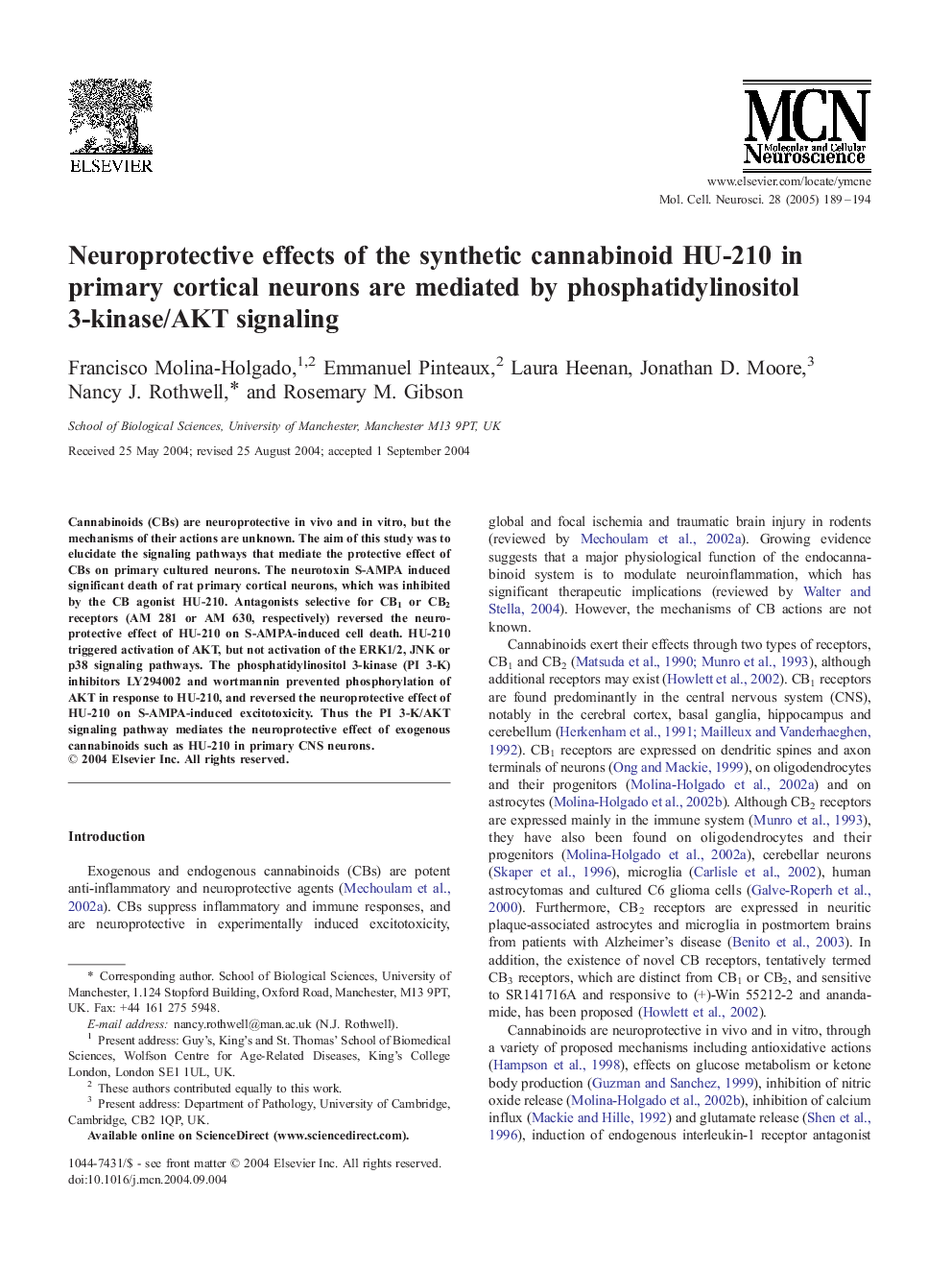| Article ID | Journal | Published Year | Pages | File Type |
|---|---|---|---|---|
| 10956939 | Molecular and Cellular Neuroscience | 2005 | 6 Pages |
Abstract
Cannabinoids (CBs) are neuroprotective in vivo and in vitro, but the mechanisms of their actions are unknown. The aim of this study was to elucidate the signaling pathways that mediate the protective effect of CBs on primary cultured neurons. The neurotoxin S-AMPA induced significant death of rat primary cortical neurons, which was inhibited by the CB agonist HU-210. Antagonists selective for CB1 or CB2 receptors (AM 281 or AM 630, respectively) reversed the neuroprotective effect of HU-210 on S-AMPA-induced cell death. HU-210 triggered activation of AKT, but not activation of the ERK1/2, JNK or p38 signaling pathways. The phosphatidylinositol 3-kinase (PI 3-K) inhibitors LY294002 and wortmannin prevented phosphorylation of AKT in response to HU-210, and reversed the neuroprotective effect of HU-210 on S-AMPA-induced excitotoxicity. Thus the PI 3-K/AKT signaling pathway mediates the neuroprotective effect of exogenous cannabinoids such as HU-210 in primary CNS neurons.
Related Topics
Life Sciences
Biochemistry, Genetics and Molecular Biology
Cell Biology
Authors
Francisco Molina-Holgado, Emmanuel Pinteaux, Laura Heenan, Jonathan D. Moore, Nancy J. Rothwell, Rosemary M. Gibson,
